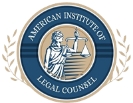Workers’ Compensation Claim Denials & Appeals from Workers Compensation Attorneys
It can be devastating if you are an injured worker whose workers’ compensation claim has just been denied. However, you don’t need to feel discouraged or think there is nothing more that can be done regarding your claim. A number of perfectly legitimate workers’ compensation claims are denied simply because the employee who filed the claim did not follow proper procedures or just wasn’t aware of the rules.
At Oktanyan Der-Grigorian Law Group, our experienced workers’ compensation attorneys help injured employees, whose claims have been denied, navigate the appeals process. We have a successful track record of obtaining the benefits that injured workers need and rightfully deserve even after their employer or the insurance carrier initially denied the claim. We represent injured workers in Glendale and all of Southern California. Call us at 818-230-2428 to find out how we can assist you.
Why Are Claims Denied?
There are a number of reasons why workers’ compensation claims may be denied. Very often, the denial does not have anything to do with whether your injury was job-related or not. There are a number of other scenarios, which may have affected your claim’s approval. Many claims tend to be denied because they were not filed in a timely manner. In California, a workers’ compensation claim must be filed within 30 days of an injury or finding out about an illness. In some instance, the doctor may have misclassified the injury or stated that the injury was not job-related.
An insurance company may deny a workers’ compensation claim under Labor Code 3600(a)(10) where the employee files a claim after he or she has been fired or laid off. In such cases, the employee must prove that the employer had notice of the injury before the termination or layoff and that he or she had medical records before the termination that contain proof of injury or that the injury occurred after the notice of termination, but before the actual date of termination or layoff.
The insurance company may also deny a claim because of a “lack of substantial evidence” to support the claimed injury. In such cases, the workers may need to provide scientific medical evidence linking his or her job to the injury. Sometimes, a claim can also be denied due to “lack of substantial medical evidence.” This is where employers or insurance companies seek to prove that the employee is exaggerating their injury to make it seem work-related. It is a sad fact that many legitimate claimants are denied much-needed benefits under this type of denial.
Fighting the Denial and Filing an Appeal
In order to get the insurance company to approve your workers’ compensation claim, which has already been denied, you will need to request a hearing before the Workers’ Compensation Appeals Board (WCAB). This will be what is known as a “trial on the preliminary issues” because your dispute with the insurer is regarding whether your injury is covered under workers’ compensation and if the insurance company is liable for the claim. To request this hearing before a WCAB judge, you or your attorney must file a form called a Declaration of Readiness to Proceed (DOR). Prior to filing this form, you should have already filed an Application for Adjudication of Claim, which is part of your original claim file, and generates your case number.
Understanding the Process
If the insurance company denied your claim base on their determination that your injury wasn’t caused by your work or that the injury didn’t occur during the course of your employment, the Workers Compensation Appeals Board judge may be able to set an expedited conference date so these issues can be resolved speedily and your claim could either be accepted or denied. At this point, you would submit what is known as a Declaration of Readiness to Proceed form. Once you do that, a pre-trial conference may be scheduled.
You should then get a notice of hearing in the mail that will tell you the date, time and location of the conference. At this conference, the judge will help try and resolve the issue over whether the claim should be accepted or denied. If there is still a lingering dispute, the matter will be set for trial. Sometimes, if the judge needs more information before moving forward, he or she can set up a discovery plan to come up with evidence that may better help him or her make decisions on your case. A majority of workers’ compensation disputes are settled at the pre-trial conference.
If the insurance company denied your claim because of medical issues, it may be necessary for you to see a doctor who will evaluate your injury or illness. However, if you are not satisfied with your treating physician’s evaluation, you can request an evaluation by another doctor. Similarly, if the insurance company is not happy with your physician’s evaluation, they can request an evaluation by another doctor as well. If you don’t have a workers’ compensation lawyer, you will choose from a panel of qualified medical evaluators or QME. If you have an attorney on your side, he or she and the insurance company will together pick an agreed-upon medical examiner or AME to evaluate you and arrive at a decision.
How Can An Attorney Help?
The process of appealing a workers’ compensation claim denial tends to be complex and intimidating. An experienced and knowledgeable attorney will be able to determine the reasons for the denial of your claim. Your attorney can also start gathering evidence including documents and witnesses to your injury. A resourceful lawyer will retain experts from the medical field to testify on your behalf.
A number of claims are denied based on medical issues. Depending on the circumstances, your lawyer may have your injury evaluated by an independent medical specialist or with your current health care provider to determine if a much more detailed medical report is warranted. Our workers’ compensation lawyers work on a contingency fee basis. This means that you do not pay anything unless we recover compensation for you. Please call us at 818-230-2428 for a no-cost, no-obligation consultation.



